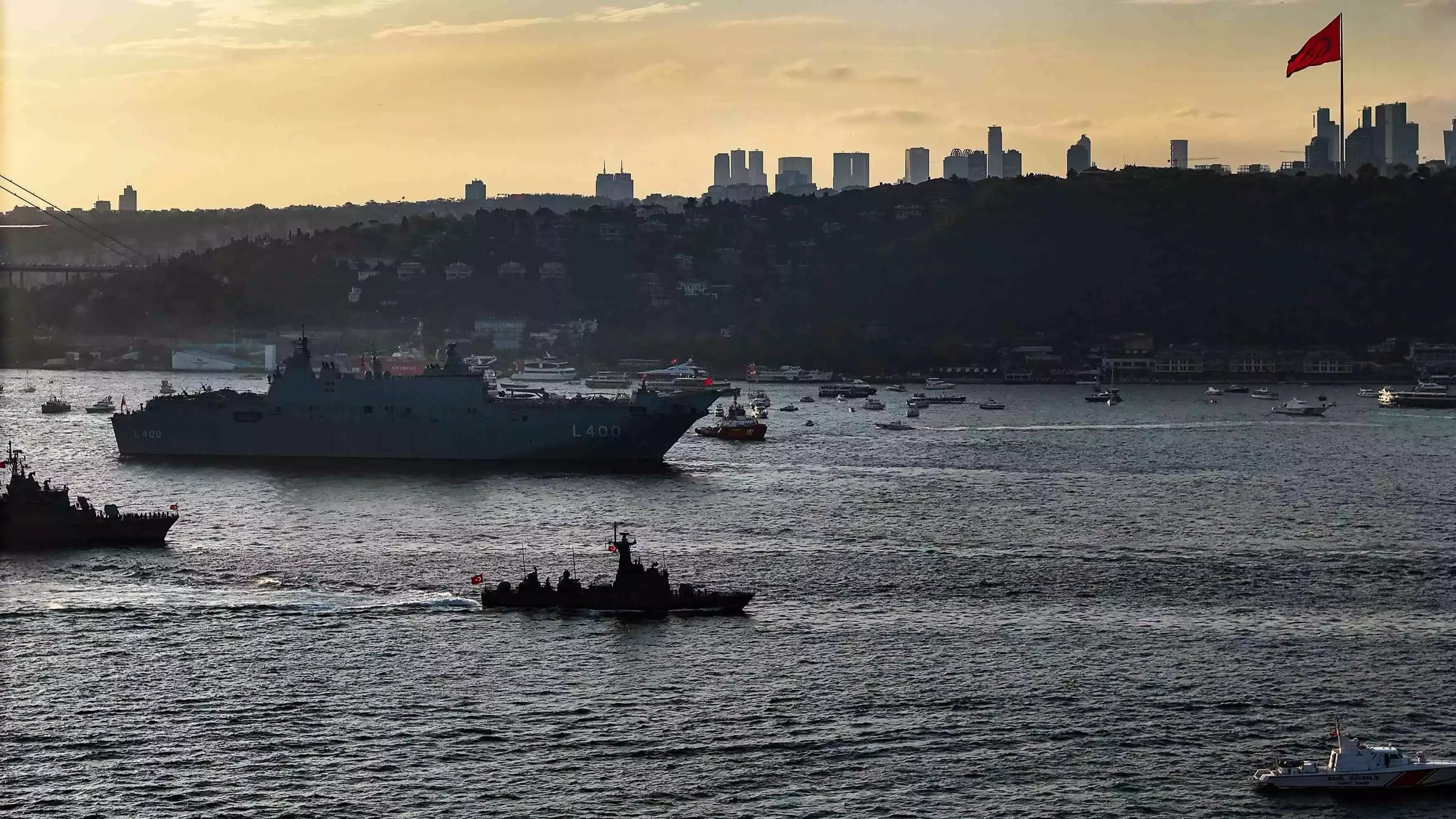
As we have explained in detail in various AVİM analyses and reports for a long time, the Turkish Straits, the only waterway connecting the Black Sea to the Mediterranean, has had strategic importance in military and economic terms for centuries. They constitute a natural border between Europe and Asia. However, at the same time, they bring these two continents together. It is possible to say that the region consisting of the Black Sea, the Aegean Sea, and the Eastern Mediterranean, joined by the Turkish Straits, forms the backbone of Eurasia. Due to this importance, the Turkish Straits have always been an essential item on the international strategic agenda and have been a subject which speculations have been made, and tricks have been used to circumvent the provisions of the 1936 Montreux Straits Convention, which endowed Türkiye with complete control of the Turkish Straits. To briefly refresh memories, it should be underlined that the purpose of the said Convention is explained as follows in its preamble:
"to regulate transit and navigation in the Straits of the Dardanelles, the Sea of Marmora and the Bosphorus comprised under the general term 'Straits' in such manner as to safeguard, within the framework of Turkish security and of the security, in the Black Sea, of the riparian States. "[1]
In our analysis titled "Careful Management of the Implementation of the 1936 Montreux Convention in a Difficult and Changing Geopolitical Environment of the Black Sea", which we published last January, we examined the reasons why Türkiye did not give permission to the United Kingdom to transfer mine hunting vessels to Ukraine in an environment where there is a war situation in the Black Sea. In this context, we explained the details of Türkiye's meticulous implementation of the provisions of the 1936 Montreux Convention. We emphasized that this meticulous implementation is important for the restoration of peace and stability not only in the wider Black Sea region and Europe in general.[2]
In our AVİM report titled "The Montreux Convention: Regional And Global Safety Valve," which we published nearly four years ago in March 2020, we expressed the following final assessment regarding the implementation of the 1936 Montreux Straits Convention:
"History has shown us that trying to open the Montreux Convention for discussion is equivalent to opening the Pandora's Box. Trying to open the Pandora's Box may cause problems more serious than what we had experienced in the past. It would not be wrong to state that the keeping the Montreux Convention as it stands has gained more validity than ever. As the title of this report suggests, Montreux Convention is still a functional regional and global safety valve for today's world. Based on what past experience has shown us, this safety valve should be kept operational under the control of Türkiye."[3]
Two years after this assessment, the Russia-Ukraine war, which started on February 24, 2022, when Russia launched a military operation against Ukraine, revealed the importance of the 1936 Montreux Straits Convention not only for the Black Sea Region but also for the world security order. In such a sensitive environment, there is no doubt that Türkiye's balanced attitude, which protects the rights of all Contracting parties by meticulously applying the legal provisions of the Convention, is a great gain for world peace. This being the case, we have recently witnessed officials of some countries that are not parties to the Montreux Convention and have no legal say in changing the provisions of the Convention making statements that are very likely to be misunderstood. An example of this is that US Deputy Secretary of Defense Ms. Celeste Wallender, in a press conference, asked Ankara to change the application of Article 19 of the Montreux Convention, which has been in force since February 24, 2022, and interpret it to open the straits to NATO warships and that they wanted to work with Türkiye on this issue. The aforementioned person's statements on this issue are included in the transcript of the US Department of Defense as follows:
"QUESTION: Thanks so much.
So the United Kingdom tried to send over a minesweeper, and that was blocked by Turkey and the Montreux -- Turkey, using the Montreux Convention.
I was wondering if you have any thoughts on whether this is something that's going to continue to be an issue if the U.S. or its allies try to send over things like minesweepers, and if this is -- you've seen any other similar incidents where aid has been blocked from getting to Ukraine?
WALLANDER: So I would note that Bulgaria, Romania and Turkey have publicly announced that they've -- they're joining together in a de-mining -- Black Sea de-mining operation. And we welcome that, because that's going to be really important, not just for Ukraine but for commercial shipping and shipping in general in the Black Sea, which is an international water -- body of water. So we want to work with the littoral countries of the Black Sea, including Turkey, on conditions under which we can move away from the state of -- state of conflict in which Turkey decided to -- and as the, kind of, guardian of the Montreux Convention, invoked that provision of the Montreux Convention.
I would just note the reason why they invoked it is because of war -- Russia's war against Ukraine. And so what we need to do is help the Ukrainians continue to defend themselves against Russian attacks so that there is a permissive environment in which we can effectively re-open the Black Sea to commercial shipping completely. The conditions are better than they were because Ukraine has been able to move out some -- some grain, some commercial shipping, in large measure because of its success in pushing back Russian naval capabilities and strike capabilities in the Black Sea.
But the real key towards beginning to build a return to commercial shipping and to Ukraine being able to operate as a navy, as a maritime power, as is its right under international law, as a littoral Black Sea country, is for Russia to end its war against Ukraine."[4]"
There is no doubt that such statements will further aggravate and complicate the war environment in the Black Sea. The only country that will decide how the Montreux Convention will be implemented is Türkiye, and the countries that will express their opinions on this implementation are the countries that are parties to the Convention.
On the other hand, as will be remembered, the US formed a coalition of more than twenty countries, called Operation Prosperity Guardian, to respond to Houthi attacks on ships in the Red Sea, and following another attack on shipping lanes in recent days, US and UK forces launched air and missile strikes on dozens of Houthi targets in Yemen. It is seen that the evaluations made by an American think tank on this subject include statements that ignore the legal status of the Turkish Straits. An example of such a statement is presented below:
"US President Joe Biden should be applauded for Thursday's strikes against the Houthis. International trade is constrained by eight primary maritime chokepoints, hard realities imposed by immutable geography. The United States has long recognized a vital national security interest in ensuring freedom of navigation through each of them. This strike helped protect those interests. Half of these eight global chokepoints are dispersed widely. Only one each can be found in Europe (the Strait of Gibraltar), in Africa (the Cape of Good Hope), in East Asia (the Straits of Malacca), and in the Americas (the Panama Canal). Unfortunately, the other half of these critical chokepoints are all concentrated in a relatively small region where southwestern Asia meets Europe and Africa: the Bosporus Strait, the Suez Canal, the Bab-el-Mandeb Strait, and the Strait of Hormuz. This area also happens to be the most important single source of the energy required to sustain global economic growth. Those two facts explain why US presidents keep rediscovering the need to focus disproportionately on the Middle East, despite their often-heartfelt desires to do otherwise."[5]
It is wrong to evaluate the Turkish Straits in the same basket with other straits and channels considered chokepoints in this part of the world. Evaluations that do not consider that the Turkish Straits are entirely under the sovereignty of Türkiye and that the only Convention regulating the passage through these straits is the 1936 Montreux Convention are doomed to misread the developments in this part of the world and inevitably produce wrong policies.
*Photograph: Hürriyet Daily News
[1] Teoman Ertuğrul Tulun, The Montreux Convention: A Regional And Global Safety Valve, Report Series of Center for Eurasian Studies 17 (Ankara: Terazi Publishing and Center for Euraisan Studies, 2020), 8.
[2] Teoman Ertuğrul Tulun, “Careful Management Of The Implementation Of The 1936 Montreux Convention In A Difficult And Changing Geopolitical Environment Of The Black Sea,” Center For Eurasian Studies (AVİM) 2024, no. 1 (January 18, 2024): 12, https://dx.doi.org/10.2139/ssrn.4706300 , https://avim.org.tr/en/Analiz/CAREFUL-MANAGEMENT-OF-THE-IMPLEMENTATION-OF-THE-1936-MONTREUX-CONVENTION-IN-A-DIFFICULT-AND-CHANGING-GEOPOLITICAL-ENVIRONMENT-OF-THE-BLACK-SEA.
[3] Tulun, The Montreux Convention: A Regional And Global Safety Valve, 40.
[4] Celeste Wallander, “Assistant Secretary of Defense for International Security Affairs Celeste Wallander Holds” (U.S. Department of Defense, Jnuary 2024), https://www.defense.gov/News/Transcripts/Transcript/Article/3653743/assistant-secretary-of-defense-for-international-security-affairs-celeste-walla/https%3A%2F%2Fwww.defense.gov%2FNews%2FTranscripts%2FTranscript%2FArticle%2F3653743%2Fassistant-secretary-of-defense-for-international-security-affairs-celeste-walla%2F.
[5] Alex Plitsas, “Experts React: What to Know about US and UK Strikes on the Houthis in Yemen,” Atlantic Council (blog), January 12, 2024, https://www.atlanticcouncil.org/blogs/new-atlanticist/experts-react/experts-react-what-to-know-about-us-and-uk-strikes-on-the-houthis-in-yemen/.
© 2009-2025 Center for Eurasian Studies (AVİM) All Rights Reserved
No comments yet.
-
 CYCLE OF DESTABILIZATION AND RESTABILIZATION: IMPACTS ON BALKAN DEMOCRACIES
CYCLE OF DESTABILIZATION AND RESTABILIZATION: IMPACTS ON BALKAN DEMOCRACIES
Teoman Ertuğrul TULUN 20.12.2024 -
 NEW STUDY SHOWS RISE OF XENOPHOBIA IN GERMANY
NEW STUDY SHOWS RISE OF XENOPHOBIA IN GERMANY
Teoman Ertuğrul TULUN 04.12.2018 -
 ITALIAN REACTION TO THE CAROLINGIAN EU PROJECT
ITALIAN REACTION TO THE CAROLINGIAN EU PROJECT
Teoman Ertuğrul TULUN 11.04.2019 -
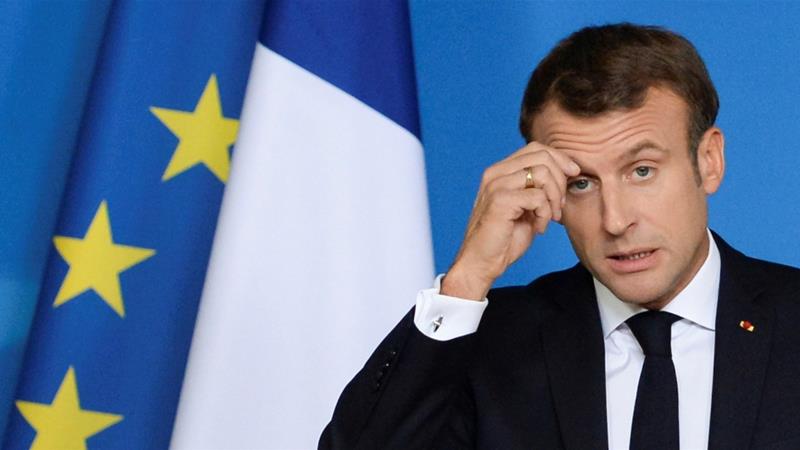 FRANCE WITH MACRON: THE DESTABILIZING FACTOR IN THE BALKANS
FRANCE WITH MACRON: THE DESTABILIZING FACTOR IN THE BALKANS
Teoman Ertuğrul TULUN 01.11.2019 -
 THE FOUNDATIONAL PILLARS OF STABILITY IN THE BLACK SEA
THE FOUNDATIONAL PILLARS OF STABILITY IN THE BLACK SEA
Teoman Ertuğrul TULUN 16.04.2025
-
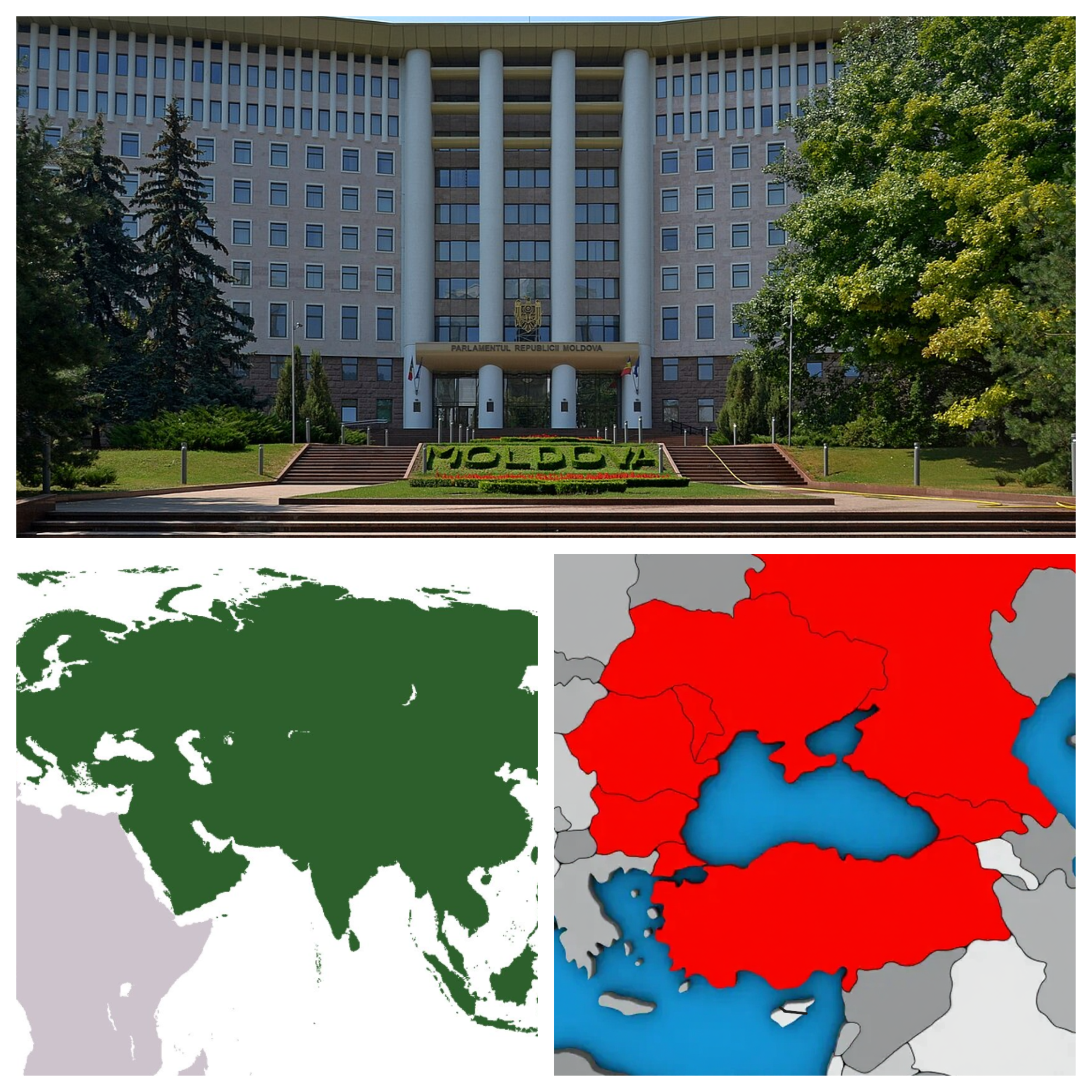 REFORMING MOLDOVA: STABILITY THROUGH CONSTRUCTIVE EURASIANISM
REFORMING MOLDOVA: STABILITY THROUGH CONSTRUCTIVE EURASIANISM
Teoman Ertuğrul TULUN 24.10.2025 -
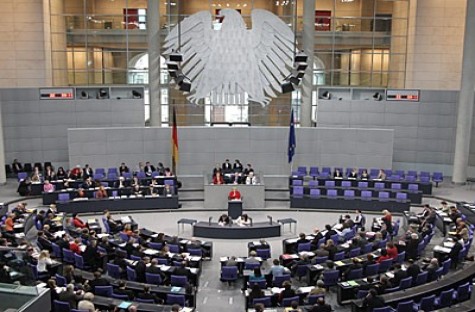 GERMANY OVER RECOGNITION OF THE 1915 EVENTS AS GENOCIDE
GERMANY OVER RECOGNITION OF THE 1915 EVENTS AS GENOCIDE
Cemre Dilay BOZTEPE 12.05.2015 -
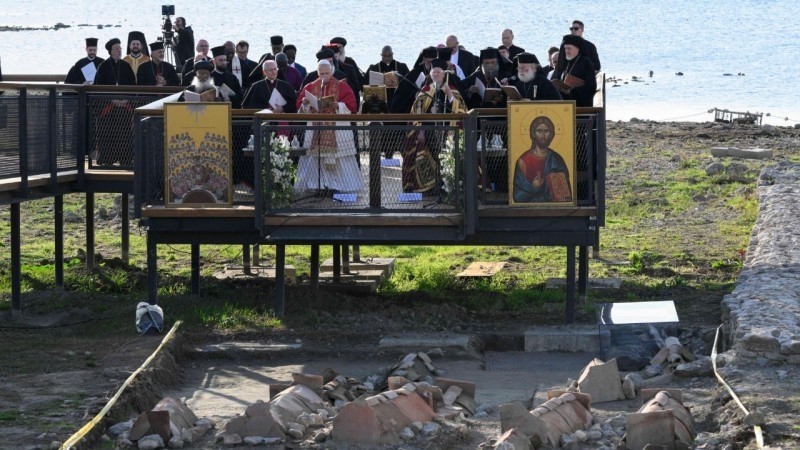 POPE LEO XIV’S NOVEMBER 2025 VISIT TO TÜRKİYE: A PUSH FOR ECUMENISM IN THE CONTEXT OF A SPIRITUAL JOURNEY
POPE LEO XIV’S NOVEMBER 2025 VISIT TO TÜRKİYE: A PUSH FOR ECUMENISM IN THE CONTEXT OF A SPIRITUAL JOURNEY
Mehmet Oğuzhan TULUN 12.01.2026 -
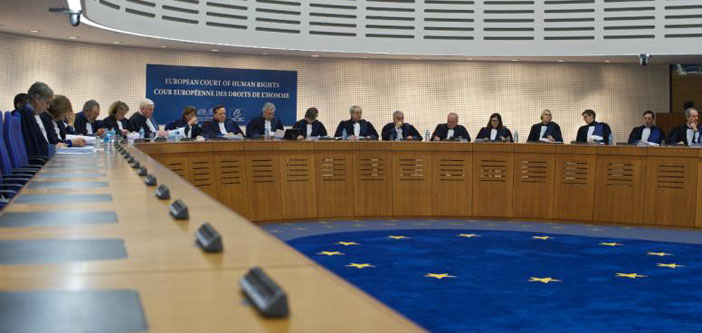 ARMENIAN ALLEGATIONS, LAW, AND POLITICAL LOBBYING
ARMENIAN ALLEGATIONS, LAW, AND POLITICAL LOBBYING
Gözde KILIÇ YAŞIN 26.05.2023 -
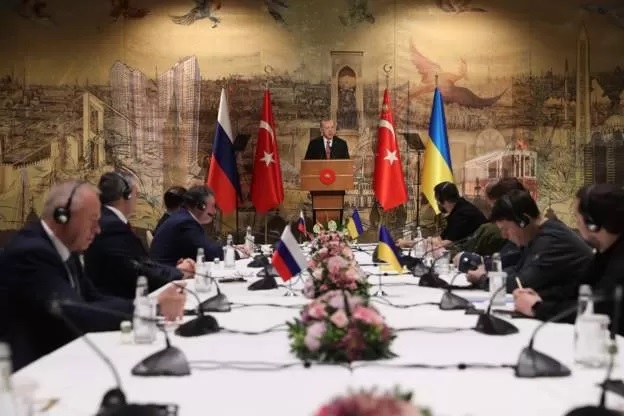 GEARS OF DIPLOMACY: TURKEY JOINING THE EQUATION
GEARS OF DIPLOMACY: TURKEY JOINING THE EQUATION
Gözde KILIÇ YAŞIN 16.05.2022
-
25.01.2016
THE ARMENIAN QUESTION - BASIC KNOWLEDGE AND DOCUMENTATION -
12.06.2024
THE TRUTH WILL OUT -
27.03.2023
RADİKAL ERMENİ UNSURLARCA GERÇEKLEŞTİRİLEN MEZALİMLER VE VANDALİZM -
17.03.2023
PATRIOTISM PERVERTED -
23.02.2023
MEN ARE LIKE THAT -
03.02.2023
BAKÜ-TİFLİS-CEYHAN BORU HATTININ YAŞANAN TARİHİ -
16.12.2022
INTERNATIONAL SCHOLARS ON THE EVENTS OF 1915 -
07.12.2022
FAKE PHOTOS AND THE ARMENIAN PROPAGANDA -
07.12.2022
ERMENİ PROPAGANDASI VE SAHTE RESİMLER -
01.01.2022
A Letter From Japan - Strategically Mum: The Silence of the Armenians -
01.01.2022
Japonya'dan Bir Mektup - Stratejik Suskunluk: Ermenilerin Sessizliği -
03.06.2020
Anastas Mikoyan: Confessions of an Armenian Bolshevik -
08.04.2020
Sovyet Sonrası Ukrayna’da Devlet, Toplum ve Siyaset - Değişen Dinamikler, Dönüşen Kimlikler -
12.06.2018
Ermeni Sorunuyla İlgili İngiliz Belgeleri (1912-1923) - British Documents on Armenian Question (1912-1923) -
02.12.2016
Turkish-Russian Academics: A Historical Study on the Caucasus -
01.07.2016
Gürcistan'daki Müslüman Topluluklar: Azınlık Hakları, Kimlik, Siyaset -
10.03.2016
Armenian Diaspora: Diaspora, State and the Imagination of the Republic of Armenia -
24.01.2016
ERMENİ SORUNU - TEMEL BİLGİ VE BELGELER (2. BASKI)
-
AVİM Conference Hall 24.01.2023
CONFERENCE TITLED “HUNGARY’S PERSPECTIVES ON THE TURKIC WORLD"









